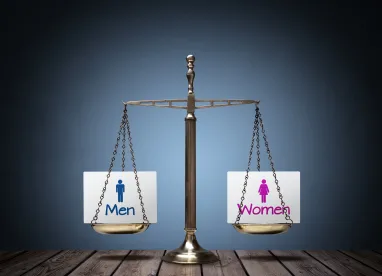The court did not address the new California Fair Pay Act, which provides that prior pay is not a defense to pay claims, and its decision is not entirely consistent with other circuit courts of appeals on whether prior pay alone is a defense under the Equal Pay Act.
In an opinion in Rizo v. Yovino dated April 27, 2017, the US Court of Appeals for the Ninth Circuit held that the federal Equal Pay Act (EPA) permits an employer to pay different wages to male and female employees for the same work if the differential is based on an employee’s prior salary. In doing so, the Ninth Circuit found that prior salary does not automatically qualify as a “factor other than sex,” one of the four statutory defenses to EPA claims. Prior pay can, however, constitute a defense if the employer’s use of prior salary effectuates a business policy and is reasonable in light of the employer’s stated purpose and its other practices.
The defendant in Rizo sued in his official capacity as the Fresno County superintendent of schools (the “County”). The County conceded that it paid the female plaintiff less than her male counterparts, but contended that this was permissible because the differential was based on the employees’ prior salaries. The defendant argued that the County’s policy of basing employee pay on prior salary (1) is objective; (2) encourages candidates to leave other jobs because candidates will always receive a 5% pay increase over their prior salary; (3) prevents favoritism; and (4) is a judicious use of taxpayer dollars.
The Ninth Circuit vacated the opinion of the district court, which had held that considering prior salaries alone could not constitute a defense to an EPA claim even if motivated by a nondiscriminatory business purpose, and remanded the case to the district court to determine whether the County’s stated reasons for relying upon prior salary effectuated a business policy and were reasonable. The Ninth Circuit explained that it was not breaking new ground with its opinion but rather affirming its holding in an opinion from 1982, Kouba v. Allstate Ins. Co., 691 F.2d 873 (9th Cir. 1982).
The Ninth Circuit did not specifically discuss California law, noting that the parties did not assert any differences between the EPA and California law, even though the plaintiff brought a separate claim under state law (specifically, the California Fair Employment and Housing Act). California is among a growing number of state and local jurisdictions that have passed or proposed legislation prohibiting employers from using prior pay as a justification for paying men and women differently, with many jurisdictions seeking to prevent an employer from even inquiring about prior salary at all. The California Fair Pay Act, which states that “[p]rior salary shall not, by itself, justify any disparity in compensation[,]” became effective in 2016 after the Rizo appeal already had been filed.
Also of note is the fact that the US Equal Employment Opportunity Commission (EEOC) filed an amicus brief in Rizo in which the EEOC argued that the EPA “does not permit employers to base pay decisions solely on applicants’ most recent prior salary.” While the EEOC brief states that an employer may consider prior pay in addition to other factors such as education and experience, the Commission took the position that prior salary alone cannot justify a compensation differential. While the Rizo court rejected this argument, refusing to draw a distinction between consideration of prior pay “alone” as opposed to prior pay in conjunction with other factors, it is possible that the EEOC will continue to press this position in other circuits.
Variances Among Circuit Courts of Appeals
The Ninth Circuit’s holding in Rizo is not consistent with its sister circuit courts of appeals, which have taken varying positions. Several other circuit courts of appeals have concluded that prior pay is not, in and of itself, a valid defense to an EPA claim as a “factor other than sex.” The Tenth Circuit and Eleventh Circuit, for example, have specifically held that prior pay alone cannot justify a pay disparity, even though it may be considered along with other nondiscriminatory factors. The Fifth Circuit has rejected the use of prior pay as a defense to an EPA claim where the use of prior salary appeared to be pretextual and was easily rebutted. The Eighth Circuit, similar to the holding in the Ninth Circuit, allows employers to rely on prior pay as an affirmative defense, but only upon a showing that the prior pay itself was not the result of discrimination or sex stereotyping. The Seventh Circuit has specifically rejected the argument that the use of prior pay alone violates the EPA, finding that there is no requirement that an employer provide any further business justification.
State and Local Laws
Several state and local jurisdictions have enacted prior pay laws, which prohibit employers from relying upon prior pay as a defense to a pay discrimination claim and/or from inquiring about prior pay in the first place: California, Massachusetts, New Orleans, New York (applicable only to state agencies), New York City (a bill has been passed but not yet signed by the mayor), Philadelphia, and Puerto Rico. Several other jurisdictions are considering similar legislation, including Connecticut, Delaware, New Jersey, Pennsylvania, Rhode Island, and Washington, DC.
Next Steps
Although Rizo provides that prior pay can be a defense to an EPA claim, employers in California that rely solely upon prior pay will face risks under that state’s Fair Pay Act. Employers that operate in jurisdictions that have enacted these laws should
-
review employment application materials to ensure that any provisions concerning employee wage inquiries or discussions comply with applicable laws,
-
train recruiting personnel about the new legislation, and
-
design handbooks and policies that prohibit sex-based pay discrepancies for comparable work and prohibit retaliation against employees who take actions protected by these laws.
In addition, employers in all jurisdictions should keep track of other factors that determine initial pay—including relevant prior work experience, education, and pay for incumbents in the same or substantially similar positions—and document the specific business reasons that motivated individual pay decisions. Furthermore, employers should conduct privileged pay equity studies and evaluate compensation practices.



 />i
/>i

